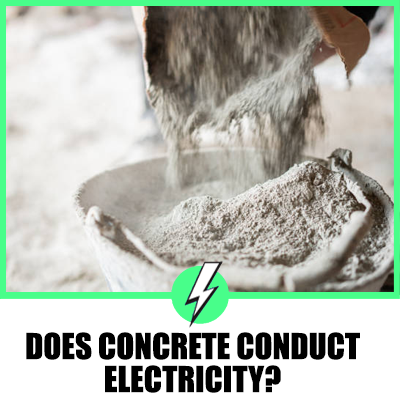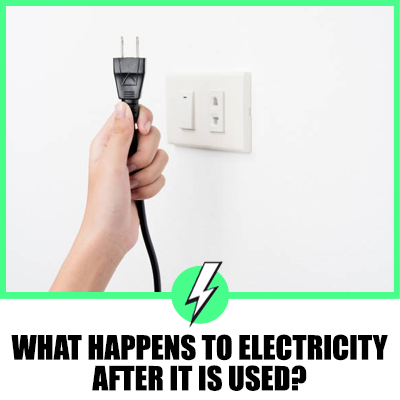Does Concrete Conduct Electricity?
Concrete, a ubiquitous material in construction, is not typically associated with electricity conduction.
However, the truth is more nuanced.
Concrete can indeed conduct electricity, but its effectiveness as a conductor is influenced by several factors.

Contents
What Makes Concrete Conductive?
Concrete is a composite material made up of fine and coarse-grained aggregate sand mixed with a paste of cement.
This mixture hardens over time, creating the solid, durable material we know as concrete.
The conductivity of concrete is primarily due to the ions it contains.
These ions can move across the concrete, allowing for the conduction of electricity.
However, the ease of this movement, and thus the conductivity of the concrete, depends on the resistance offered by the concrete surface.
Dry concrete, with nothing but the usual concrete ingredients (sand, water, natural aggregate, etc.), is a poor conductor of electricity and can actually be used as an insulator.
In contrast, wet concrete, due to the free ions in water molecules, is more likely to conduct electricity.
This is because water is a good conductor of electricity due to the presence of free ions that can flow easily.
What Makes Something Conduct Electricity In The First Place?
At the atomic level, substances like wood or glass, where atoms are packed closely together and electrons stick closely to their atoms, are known as resistors.
They require a significant electrical charge to allow electricity to pass through them.
In contrast, electrical conductors have many free electrons floating around throughout the substance.
In the most conductive substances, like copper or gold, there are so many of these free electrons that they form a kind of electron soup, with all of the electrons being shared by all of the atoms.
This makes it very easy for electricity to pass through.
Does Concrete Conduct Static Electricity?
Concrete’s ability to conduct static electricity is similar to its ability to conduct regular electricity.
Dry concrete is a poor conductor of static electricity, while wet concrete can conduct it more effectively.
This is due to the same factors that affect the conduction of regular electricity: the presence of ions and the resistance offered by the concrete.
Is Concrete a Conductor or Insulator of Heat?
While concrete can conduct electricity under certain conditions, it is generally considered a poor conductor of heat.
Concrete’s thermal conductivity is relatively low compared to other building materials like metal.
This means that it does not transfer heat very effectively, which can be an advantage in building design as it helps to maintain a stable internal temperature.
Is Concrete a Poor Conductor of Heat?
Yes, concrete is generally considered a poor conductor of heat.
Its low thermal conductivity means that it does not transfer heat very effectively.
This property makes concrete a good choice for building in both hot and cold climates.
In hot climates, it can help to keep buildings cool by reducing the amount of heat that is transferred from the outside.
In cold climates, it can help to keep buildings warm by reducing the amount of heat that is lost to the outside.
Insights from Online Discussions
Online discussions reveal a variety of perspectives on the topic of concrete’s electrical conductivity.
Some users point out that while concrete can conduct electricity, it is a very poor conductor.
They note that completely dry concrete offers very high resistance and can be classified as an insulator, while moist concrete can have some electrical conductance.
Others discuss the composition of concrete and how it affects conductivity.
They mention that concrete is made up of chemical components that have free ions to move across it.
However, the ease of flow of electrons mainly depends upon the resistance offered by the concrete surface.
There is also discussion about the potential future uses of conductive concrete.
Some users mention the possibility of using conductive concrete to heat roads and make them safer to use in the snow.
Others talk about the potential for conductive concrete to serve as grounding for lightning rods.
In conclusion, while concrete can conduct electricity, its effectiveness as a conductor is influenced by several factors, including its composition and moisture content.
Despite its potential to conduct electricity under certain conditions, concrete is generally considered a poor conductor of both electricity and heat.





